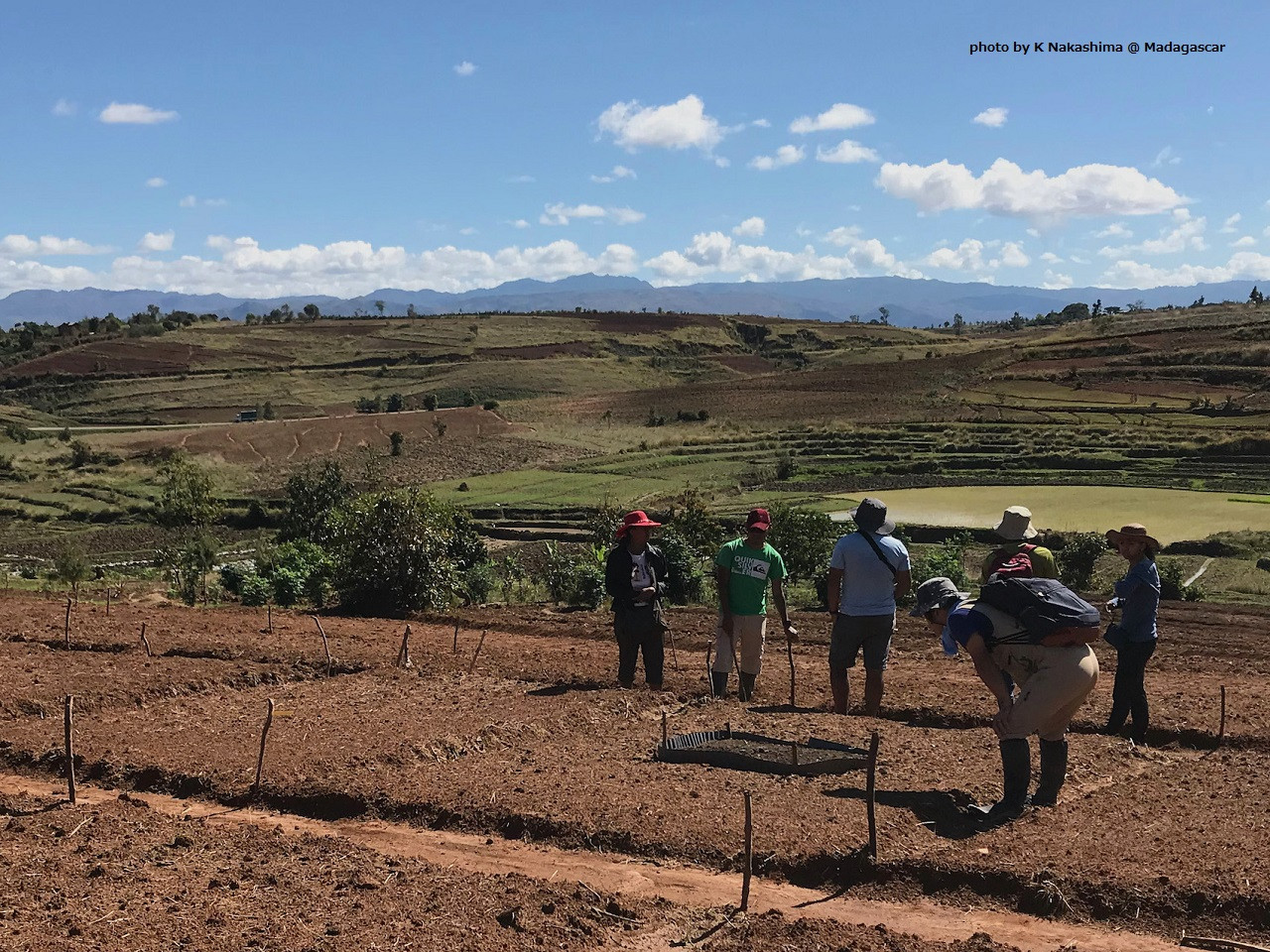Pick Up
671. World Soil Day 2022

World Soil Day is held annually on December 5 to promote a better understanding of soil resources, recognize the importance of soil health, and advocate for its sustainable management. This year's theme is Soils: Where food begins.
Like humans, plants and animals need vitamins, minerals, and other nutrients to replenish their energy, basic nutrients and immunity in order to survive, but they need fertile soil to do so. According to the official FAO World Soil Day website, 95% of food is produced in soil. The soil also provides 15 of the 18 naturally occurring nutrients (elements) known to be essential for plant growth, excluding carbon, which is fixed from the atmosphere through the action of photosynthesis, and hydrogen and oxygen, which are supplied as water. Sustainable soil management is essential to meet the food needs of a world population that is expected to reach about 100 million by 2050.
In particular, many African countries are chronically dependent on food imports because agricultural productivity has not kept pace with the significant rise in food demand associated with population growth. Soil degradation is particularly serious in Africa, and soil conditions are a major limiting factor in food production. Improving food productivity requires a thorough understanding of soil fertility and the establishment of fertilizer management techniques based on this soil information.
In Africa, which faces such problems, JIRCAS has long been engaged in research contributing to the improvement of soil fertility in cooperation with research institutes and government agencies in the partner countries. Currently, we are developing technologies to improve soil fertility management and productivity in poor soils in Africa through the Africa Rice farming system and the African upland farming system projects.
There is also a growing need to assess issues related to sustainable soil management from both scientific and policy perspectives, and the international community is also engaged in awareness-raising activities through various events. JIRCAS also took advantage of the 8th Tokyo International Conference on African Development (TICAD 8) held in August this year to launch a special page on African agricultural research, including soil research, and hosted two soil-related seminars as official side-events.
JIRCAS Information Page on Agricultural Research in Africa
https://www.jircas.go.jp/en/africa-research
Report on TCAD8 Side-Event “Healthy Soils for Food Security in Africa: The Potential of Regenerative Agriculture”https://www.jircas.go.jp/en/program/proc/blog/20220825
Report on TCAD8 Side-Event “Managing African Soil for Food Security and Environmental Sustainability”https://www.jircas.go.jp/en/program/proc/blog/20220915
With global fertilizer prices soaring to near record highs, low-income countries dependent on imported fertilizers are facing technical and economic challenges in maintaining soil health. Therefore, in addition to short-term financial and humanitarian assistance, mid- to long-term innovations are expected to be developed to maintain and improve productivity and reduce environmental impact through fertilizer management methods suited to the climatic, soil science, and socioeconomic conditions of each region of the world, and through the development of crop varieties that enable more efficient fertilizer use.
Contributors: NAKASHIMA Kazuo (Food Program), TSUJIMOTO Yasuhiro and NAKAMURA Satoshi (Crop, Livestock and Environment Division), KANAMORI Norihito (Information and Public Relations Office), IIYAMA Miyuki (Information Program)
